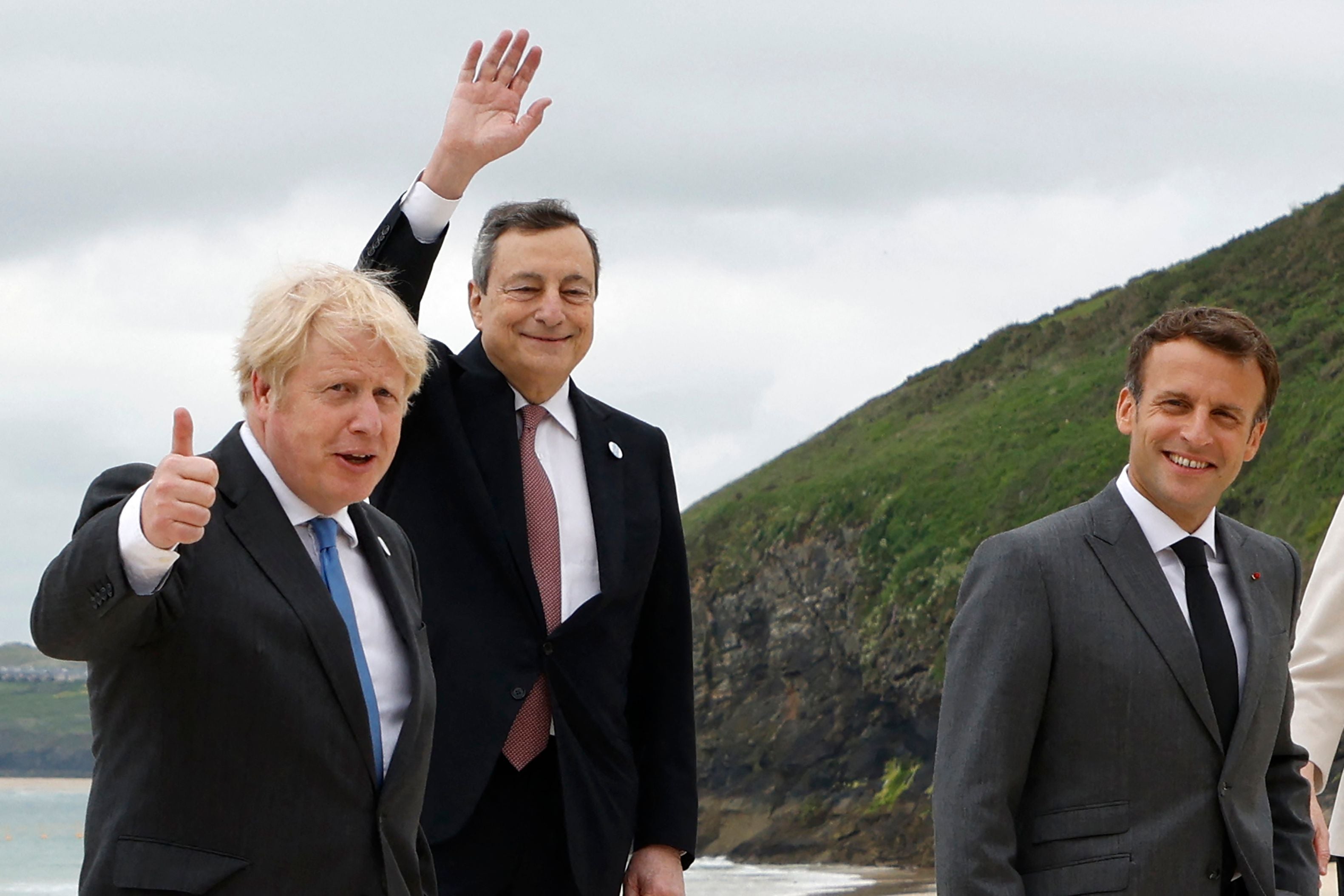Boris Johnson’s plea for G7 to educate world’s poorest children branded an ‘empty promise’ after 40% aid cut
UK to spend £430m to ‘get more girls into the classroom’ – but is already swiping £390m from global education work

Your support helps us to tell the story
From reproductive rights to climate change to Big Tech, The Independent is on the ground when the story is developing. Whether it's investigating the financials of Elon Musk's pro-Trump PAC or producing our latest documentary, 'The A Word', which shines a light on the American women fighting for reproductive rights, we know how important it is to parse out the facts from the messaging.
At such a critical moment in US history, we need reporters on the ground. Your donation allows us to keep sending journalists to speak to both sides of the story.
The Independent is trusted by Americans across the entire political spectrum. And unlike many other quality news outlets, we choose not to lock Americans out of our reporting and analysis with paywalls. We believe quality journalism should be available to everyone, paid for by those who can afford it.
Your support makes all the difference.Boris Johnson has been accused of an “empty promise” after urging the G7 to get the world’s poorest children into school – despite slashing aid funding for education by 40 per cent.
The prime minister came under fire after he said it was “a source of international shame” that youngsters “bursting with potential” are denied lessons, simply because they are girls or deprived.
He announced £430m for the Global Partnership for Education (GPE) and urged fellow world leaders to match the UK’s commitment to “get more girls into the classroom”.
But aid groups protested that the cash was all but cancelled out by the UK swiping around £390m of funding for improving education over two years – part of £4bn-a-year overall aid cuts.
The global children’s charity Theirworld called the sum announced “a drop in the ocean” next to the scale of the crisis, while Unicef said ambition was not being “matched by vital funding”.
World Vision said the £430m would still leave funding below its 2019 level and would not be enough “to address the significant barriers which exist to prevent girls from access education”.
And Rose Caldwell, chief executive of Plan International UK, said its work in Guatemala, Honduras, Nepal and Sudan had revealed 6 in 10 children are not yet fully back in education.
Nearly two-thirds of teachers were unable to teach remotely during lockdowns, because of their own or their students’ lack of IT, it said.
“Covid-19 has created the biggest education emergency of our lifetime. Yet this pledge follows shameful cuts to overseas aid,” Ms Caldwell said.
“The reality is that, without adequate funding, today’s targets and the flagship Girls’ Education Declaration will be nothing but empty promises.”
That declaration is intended to ensure that every girl in the world receives 12 years of quality education.
No 10 says its £430m will boost work in 90 lower-income countries, helping to train 2.2 million more teachers, build 78,000 new classrooms and buy 512 million textbooks.
Next month the UK and Kenya will co-host the Global Education Summit in London which aims to help raise $5bn to support the work of the GPE over the next five years.
But the UK is facing international criticism for its aid cuts – even as most other G7 countries increase their funding, to reflect the impact of the pandemic.
Mr Johnson said: “The best way we can lift countries out of poverty and lead a global recovery is by investing in education and particularly girls’ education.
“It is a source of international shame that, every day around the world, children bursting with potential are denied the chance to become titans of industry, scientific pioneers or leaders in any field, purely because they are female, their parents’ income or the place they were born.”
Join our commenting forum
Join thought-provoking conversations, follow other Independent readers and see their replies
Comments